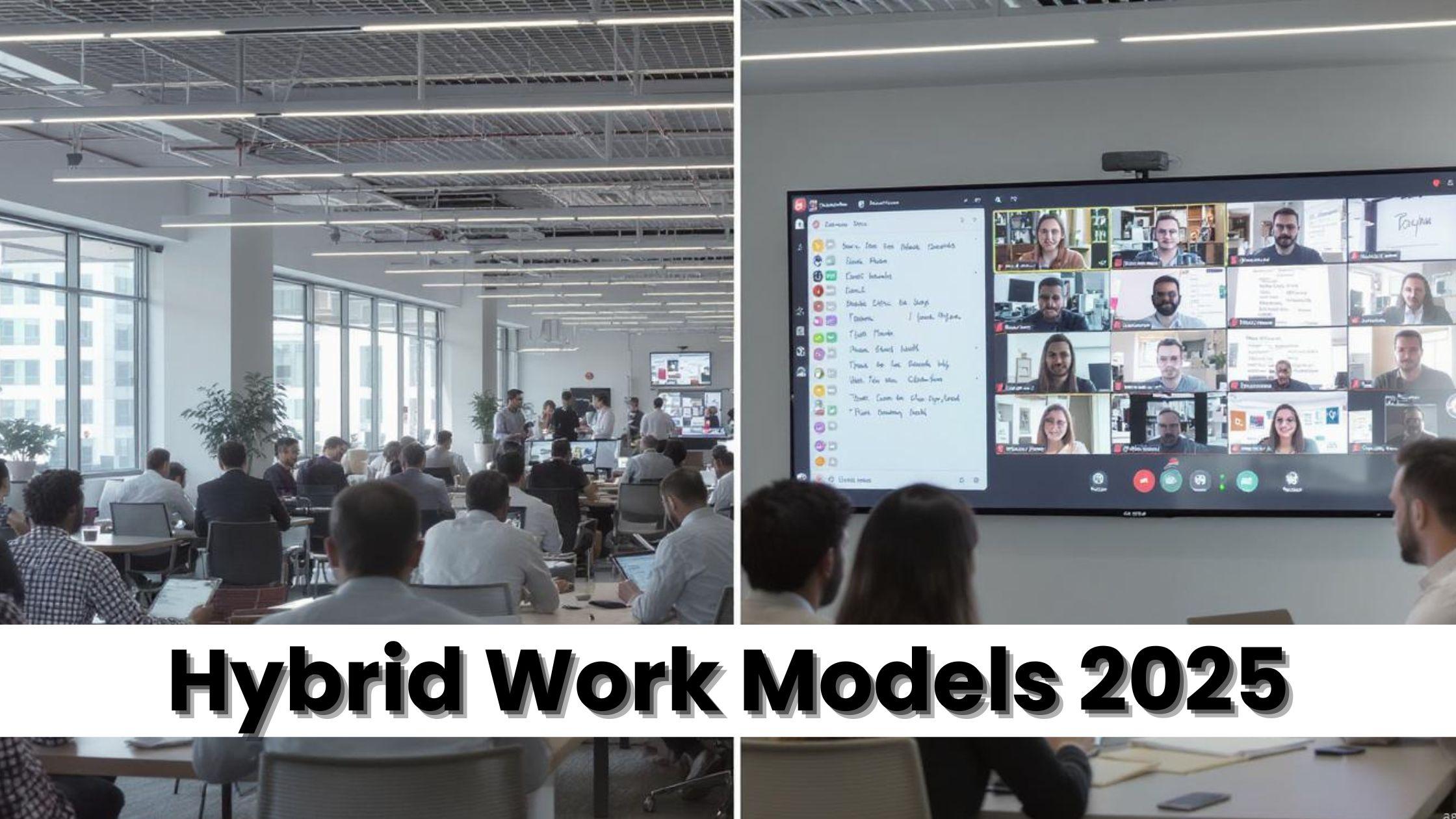Legal and Compliance Considerations for Hybrid Work Models 2025

As hybrid work becomes widespread, organizations must navigate a complex legal and regulatory landscape. Hybrid Work Models 2025 require companies to ensure compliance with labor laws, data privacy regulations, and workplace safety standards. Understanding legal obligations protects businesses from risks while fostering a safe, fair, and productive work environment for employees.
Key Legal and Compliance Considerations
Hybrid work combines remote and in-office arrangements, creating potential challenges in areas such as employment contracts, occupational health, cybersecurity, and data protection. Addressing these issues proactively helps organizations minimize liability and maintain operational integrity.
Best Practices for Legal and Compliance Management in Hybrid Work
1. Review Employment Contracts
Ensure employment agreements reflect hybrid work arrangements, including office attendance, remote work policies, and flexibility options. Clear documentation prevents disputes and aligns expectations between employees and employers.
2. Comply with Labor Laws
Organizations must adhere to local labor regulations, including working hours, overtime, and employee rights. Hybrid models should respect jurisdiction-specific laws, especially when employees work remotely across regions.
3. Ensure Data Privacy Compliance
Remote work increases the risk of data breaches. Companies should implement GDPR, CCPA, or other relevant privacy standards, encrypt sensitive information, and train employees on secure data handling practices.
4. Implement Cybersecurity Measures
Robust cybersecurity protocols, such as VPNs, firewalls, multi-factor authentication, and endpoint security, protect organizational systems from cyber threats. Regular audits and employee training strengthen security compliance.
5. Address Occupational Health and Safety
Employers are responsible for the safety of remote employees. Guidelines on ergonomics, safe workstations, and mental health support help meet workplace safety obligations while promoting employee well-being.
6. Establish Clear Remote Work Policies
Document remote work guidelines covering hours, deliverables, communication expectations, and technology usage. Policies should also clarify legal responsibilities for equipment, internet access, and data security.
7. Monitor Cross-Border Compliance
Hybrid work often involves employees in different states or countries. Organizations must comply with international employment laws, tax regulations, and labor standards to avoid penalties and legal complications.
8. Protect Intellectual Property
Remote work increases the risk of IP exposure. Implement confidentiality agreements, secure file-sharing platforms, and strict access controls to safeguard company assets and proprietary information.
9. Train Managers and Employees
Regular compliance training ensures both managers and employees understand legal responsibilities in hybrid environments. Training covers data privacy, workplace safety, and ethical practices.
10. Conduct Regular Audits
Periodic audits of hybrid work practices help identify gaps in compliance, ensure adherence to policies, and maintain a risk-aware culture. Documentation of audits provides accountability and transparency.
11. Encourage Reporting of Issues
Provide clear channels for employees to report legal or ethical concerns. Whistleblower protection, anonymous reporting, and open communication ensure compliance and foster trust.
12. Update Policies as Laws Evolve
Legal regulations change frequently. Organizations should review and update hybrid work policies to remain compliant with labor laws, data protection rules, and industry-specific regulations.
Read Full Article : https://bizinfopro.com/blogs/hr-blogs/hybrid-work-models-2025-best-practices-for-flexibility-and-productivity/
About Us : BizInfoPro is a modern business publication designed to inform, inspire, and empower decision-makers, entrepreneurs, and forward-thinking professionals. With a focus on practical insights and in‑depth analysis, it explores the evolving landscape of global business—covering emerging markets, industry innovations, strategic growth opportunities, and actionable content that supports smarter decision‑making.
- Vibnix Blog
- Politics
- News
- Liberia News
- Entertainment
- Technology
- Formazione
- Art
- Causes
- Crafts
- Dance
- Drinks
- Film
- Fitness
- Food
- Giochi
- Gardening
- Health
- Home
- Literature
- Music
- Networking
- Altre informazioni
- Party
- Religion
- Shopping
- Sports
- Theater
- Wellness



